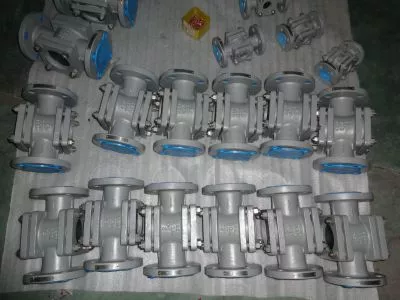Points needing attention for forged steel valves
According to the performance and function, forged steel valves can be divided into forged steel check valves, forged steel ball valves, forged steel globe valves, forged steel gate valves, forged steel needle valves, forged steel bellows valves, self-sealing gate valves, self-sealing check valves, forged steel insulation valves, high-pressure forged steel gate valves, etc. Due to the special production process and application environment, forged steel valves form a feature that other valves cannot replace.
Its application range is very wide, suitable for high vacuum environment, high pressure environment. A few millimeters of diameter, even a few meters of diameter forged steel valves can play a role.
Although the advantages of forged steel valves are numerous, the necessary problems in use should be noted. The most easily overlooked is the amount of grease. The excessive amount of grease will cause waste, and too little will cause the sealing surface wear and tear. In the actual use, one must pay attention to control grease amount.
When it comes to forged steel valves, the problem of grease injection is often overlooked. After the grease gun is refueled, the operator selects the valve and the grease-bonding method for the low-temperature shut-off valve to perform the grease filling operation. There are two kinds of conditions for the forged steel gate valve: on the one hand, the amount of grease is less than that of the desirable grease, and the wear of the sealing surface is accelerated by the lack of lubricant. On the other hand, excessive fat injection causes waste. There is no accurate calculation of the different valve sealing capacities based on the valve type and category. The sealing capacity can be calculated in terms of valve size and valve type, and a proper amount of grease can be injected reasonably.
For forged steel gate valves, pressure problems are often ignored. In the grease injection operation, the grease-loaded regular semi-free float-type steam trap has a peak-to-valley change. If the pressure is too low, the seal leaks or the safety valve fails. If the pressure is too high, the grease port is clogged, the seal grease hardens or the seal ring, the valve ball and the valve plate are locked. Usually, when the grease pressure is too low, the injected grease flows into the bottom of the valve chamber, which usually occurs in a small gate valve. On the one hand, the pressure of the grease flow control valve is too high. On the other hand, check the grease nozzle when the grease valve is inspected. If the hole of the grease remote control float valve is blocked, the spring seal is replaced with a wrench. The other lubricant for plunger valve is a lipid. For hardening, use a cleaning solution, repeatedly soften the failed sealing grease, and inject a new grease to replace it. In addition, the sealing type and sealing material also affect the grease filling pressure. Different sealing forms have different grease filling pressures. Generally, the grease pressure of hard sealing is higher than that of soft sealing.
For forged steel shut-off valves, the problem of the valve in the switch position should be paid attention to. Ball valve maintenance is generally performed in the open position. In special circumstances, choose to turn off the maintenance. Other valves cannot be discussed in terms of opening. Forged steel shut-off valves must be closed during maintenance to ensure that the grease fills the seal groove along the seal. If it is open, the seal grease will fall directly into the runner or valve cavity, causing waste. When the valve is greased, the problem of grease injection is often ignored. The pressure, grease injection amount and switch position are normal during the grease filling operation. However, in order to ensure the grease filling effect of the valve, it is sometimes necessary to open or close the valve to check the lubrication effect and confirm that the valve ball or the surface of the valve is evenly lubricated.
